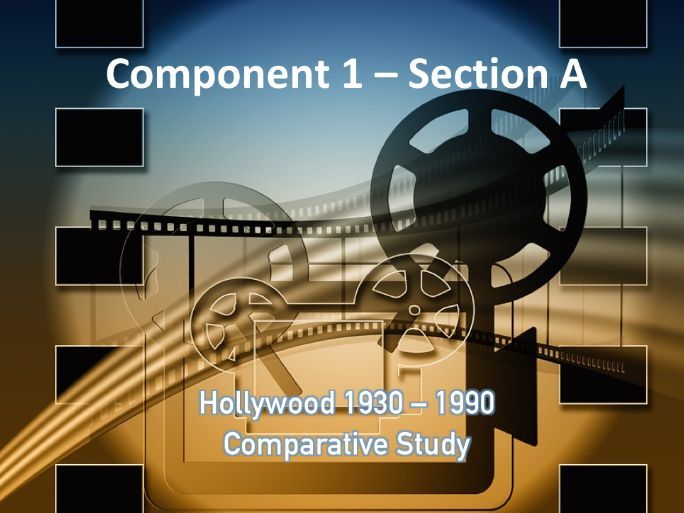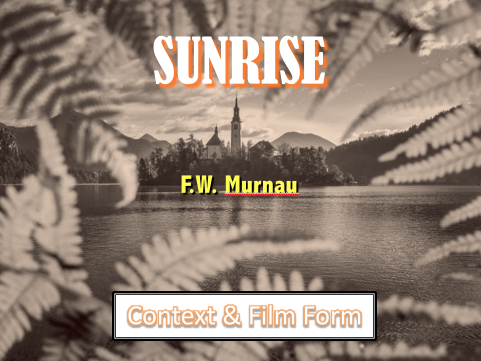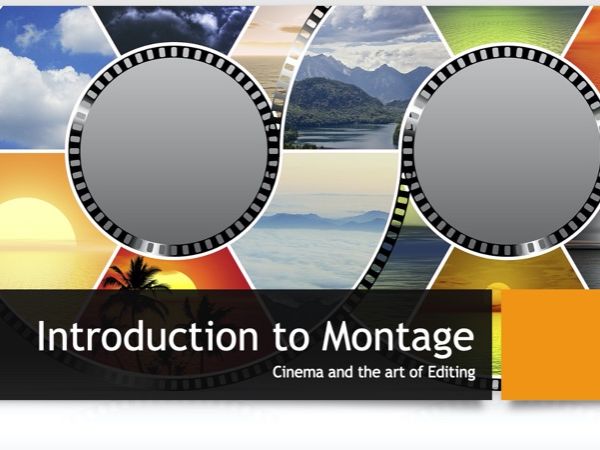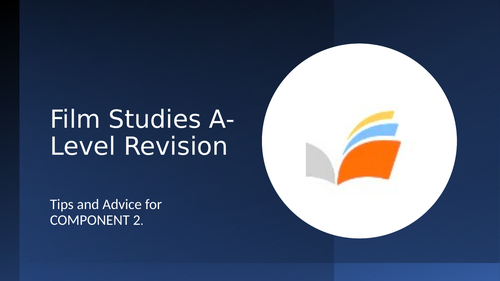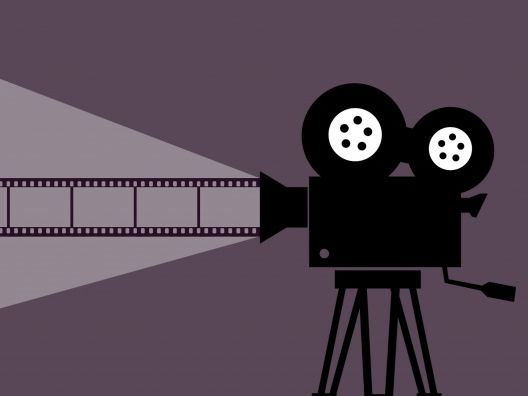57Uploads
12k+Views
2k+Downloads
Media studies

Trainspotting - Ideologies
For the** EDUQAS Film Studies A Level** Component 1C. British Films, this resource provides a great exam revision preparation lesson. This is a 24 slide PowerPoint including interactive activities that allow students to reflect on ideological meanings and to share their ideas.
The resource is focused on the EDUQAS A Level examination, and includes past questions to guide pupils in how to craft good answers targeted on ideological analysis. Includes key prompts and talking points for ideology and a sample binary analysis.

MUSTANG (Erguven, 2015) A Level Film Studies Revision PowerPoint
This 69 slide full-colour interactive PowerPoint Presentation covers very targeted learing objectives for the EDUQAS A Level Film Studies Specification on Global CInema. Objectives include: Core Study Areas (Mise-en-scene, Social and Political Contexts, Reception, Exam Questions and Mark Schemes, and Production notes.
This resource will be used in a two-hour lesson and promotes discussion of key symbols and themes, as well as allowing for close analysis of mise-en-scene.

New Hollywood of the 1970s PowerPoint Presentation
This is a full color 20-slide presentation with links to helpful film clips as illustrations.
It forms a class lesson for A-Level film Studies or equivalent and gives helpful context for films produced at this exciting, director-led period of of Hollywood cinema.

Captain Fantastic: Ideology & Spectatorship
This is a 27 slide interactive PowerPoint to prepare pupils for the Eduqas A Level Film Studies, Component 1B. exam.
Ideology and Spectatorship are explored and applied to the film Captain Fantastic (Ross, 2016) with lots of questions for pupils to ponder and discuss throughout.
Helpful ‘talking points’ about how to interpret the ideological positioning of the Cash family.
Theory: Laura Mulvey’s ‘male gaze’ is touched on as is Stuart Hall’s reception theory. The presentation is designed to provide two-hour lesson plan.

Director Andrea Arnold - Her Auteur Signature
Studying FISH TANK (UK, 2009) for the Film or Media A-Level?
Or perhaps you are just looking for a film with empowered female leads?
Maybe you want to think about the concept of an ‘auteur’ director?
This resource also gives some tips for studying ideology in films.
Suited to 14+ age groups, this resource can be used for the EDUQAS Film Studies A-Level or AS Level, or just as an introduction to the concept of ‘Auteur’ directors or ideology.

EDUQAS Film Studies A-Level , Hollywood 1930 – 1990 Comparative Study (REVISION)
This 14 slide, fully-animated presentation involves key revision in preparation for Component 1, Section A: Hollywood 1930 – 1990 Comparative Study. Focus is on the auteur debate and industrial contexts, with other factors such as gender representation and genre also considered. The presentation involves interactive exercises and should fill one lesson.

EDUQAS FILM STUDIES A LEVEL REVISION, Component 1C. British Films
This is a fully animated, full colour interactive 32 slide Power Point Presentation.
It provides an excellent lesson plan for a two hour lession, and includes four practice questions from past papers, with lots of suggestions on how to tackle 'ideologies’ questions. It suggests some binary analyses of the films Trainspotting and Fish Tank and provides some indicative content tips from the exam boards.
Much of the content is based on advice from EDUQAS Film Studies examiners.

Identity in Trainspotting
This is a 50 slide full colour PowerPoint Presentation on national identity versus British identity (as well as multicultural, globalized Britain) in the 1996 film Trainspotting (Danny Boyle).
This is very useful for** EDUQAS A Level Film Studies** because of the focus on representations in the film, including how particular aspects of **mise-en-scene **link to identity, narrative themes and character.
This presentation can be used to study the film’s binary oppositions and how Scotland and London come to represent different outlooks, rather than just different geographical locations.

EDUQAS A-Level Film Studies - introduction to SPECTATORSHIP Issues
This resource closely follows the EDUQAS A-Level specification and the Lisa Wardle textbook to offer teachers a comprehensive introduction to the main issues around spectatorship. This is especially useful in teaching Component 1, Section B, American Film Since 2005.
Topics covered include active versus passive spectatorship, viewer positioning, analysis of how film form and narrative shape spectator response, viewing contexts, demographic factors, intertextuality, preferred, negotiated and oppositional readings ( Stuart Hall’s theory) with a few case study application suggestions (CAROL, Haynes, 2015).
The resource includes interactive exercises and is presented with nice visuals and text/picture animations.
Approx length of time - 1 entire lesson (1 hour).
Number of slides: 38.

EDUQAS FILM STUDIES A-Level - Silent Cinema Sunrise (F.W. Murnau)
This 39-slide fully interactive presentation ends with exam questions and guidance from the EDUQAS boards, as well as offering historical context and aesthetic characteristics of German Expressionist cinema, with special focus on SUNRISE (FW Murnau).
This presentation is excellent for exam revision and conveys the key talking points for this section of the **Film Studies **Component 2 paper.

Moonlight - A Level Film Studies EXAM FOCUS
This 25 slide full colour PowerPoint Presentation provides helpful exam preparation for ideology and spectatorship (Eduqas Film Studies Component 1B.). The resource is closely focused on what examiners will expect, and offers talking points, discussion questions, and commentary on core study areas and representation.

EDUQAS A Level Film Studies - Gender in Some Like It Hot
This 25 Slide PowerPoint Presentation can be used for an hour long lesson on gender representations in Billy Wilder’s 1959 film ‘Some Like It Hot’. This can be used for the Component 1A. American Film Exam preparation in Film Studies, or it could be useful in AS Film Studies or Media Studies to discuss gender transgression, homoerotic subtext and feminist themes or messages in the film.
The film challenges gender binaries and stereotypes and cleverly uses subtext and indirect or double meanings to get across its progressive messages in subtle ways that would not have alienated 1950’s American audiences.
This is an interactive presentation that ends with a 15 minute exercise.

CAROL (2015, Todd Haynes) A Level Film Studies Resource
This is a 63 slide full-colour interactive PowerPoint Presentation.
It provides a two hour lesson plan covering the production context, social & political contexts, reception,** spectatorship ** (including past exam questions, Hall’s reception theory and how to apply it to CAROL, viewer positioning, binaries in the narrative, and symbolism in the mise-en-scene.
This is useful to EDUQAS A Level Film Studies Tutors but also to MEDIA studies teachers.
***Also useful for LGBTQ+ History Month **

Cinema and the Art of EDITING
For both film and media studies, this 14-slide full colour, interactive PowerPoint presentation provides a brief introduction to the basics of film editing (montage).
The six elements of an edit are introduced, as well as a discussion of pace, style of editing and parallel editing (cross cutting).
Helpful links to YouTube videos provide illustrative examples of the terminology presented.
The Presentation - along with Q&A and examples - should fill a 1 hour lesson.

Winter's Bone Ideology Graphic
This Graphic provides an overview of the key ideological issues for the film Winter’s Bone. There are other possibilities for the A-Level Film Studies Exam (such as gender or class) but this graphic provides possibly the best understanding of the more subtle political ideologies within the narrative and their contexts than the more ‘identity’ based approach to ideology.
This graphic places the film within its concurrent social and political contexts, and these bear upon how the film will be** ‘de-coded’** (vis. Stuart Hall’s theory) by viewers, depending upon the background knowledge they bring to their viewing experience. Therefore, this resource provides possibilities for** spectatorship issues** as well as ideology.

EDUQAS A Level FILM STUDIES: Component 2 Revision
This 37 full colour slide show (PowerPoint Presentation) provides an overview of the Component 2 - Global Cinema exam. It offers many detailed tips for candidates, and supports their work on the following films: Mustang (Erguven), Timbuktu (Sissako), Sisters in Law (Longinotto), Sunrise (Murnau) and Fallen Angels (Wong).
There are interactive questions allowing for students to get involved and to be fully engaged for an entire two hour lesson.

British Film Since 1995 (Eduqas A Level Film Studies Revision)
This 30 full colour , interactive PowerPoint Presentation is the ideal revision tool to prepare students for the A-Level Film Studies exam paper (Component 1C.).
THe two films refrenced are Trarispotting (Boyle, 1996) and Fish Tank (Arnold, 2009).
The resource closely follows the Eduqas Examination Board’s advice and guidance on how to approach ideologies. There are example questions from past papers, discussion prompts and class exercises as well as an essay structure scaffold.
This could be used on conjunction with the two films to teach ideologies and narrative, and provides example binary analyses - a tool for ideological analysis that is transferable to any narrative.

Spectatorship Test
This 10 question test is a great accompaniment to the Specatatorship PowerPoint Presentation Resource for teaching the EDUQAS A-Level Film Studies Component 1, Section B. Contemporary American Film.
Topics covered include: hypodermic needle theory, active versus passive spectatorship, archetypes, intertextuality, viewing contexts, polysemy and oppositional readings of films.
The test is best used for Year 12 or Year 13 film studies but can also be helpful for Media Studies teachers vis-a-vis spectaorship and ideology.

Post-Screening Discussion Questions - Film Studies - Raise the Red Lantern (1991)
**Raise the Red Lantern **(Dir. Zhang Yimou, 1991, China) is an excellent example of a film that deconstructs how
patriarchal power works and in this sense it is a film that is empowering for women, despite being a narrative *about *
disempowered women.
The film has also been discussed as a metaphor for Chinese state power and therefore also functions a a subversive political commentary.
With beautiful cinematography and composition throughout, this film is also a study in cinematic perfection, with mise-en-scene used to great symbolic effect. The film could be studied just as an excellent example of mise-en-scene.

Do Documentaries Tell Stories? - starter exercise
This is a quick starter worksheet to get students to begin a discussion on the similarities and differences between documentaries and narrative (fiction) films. They may be surprised how many conventions and techniques overlap. This can help to stimulate discussion of what makes a film a documentary, since documentaries can be harder to distinguish from narrative films than one might think.






